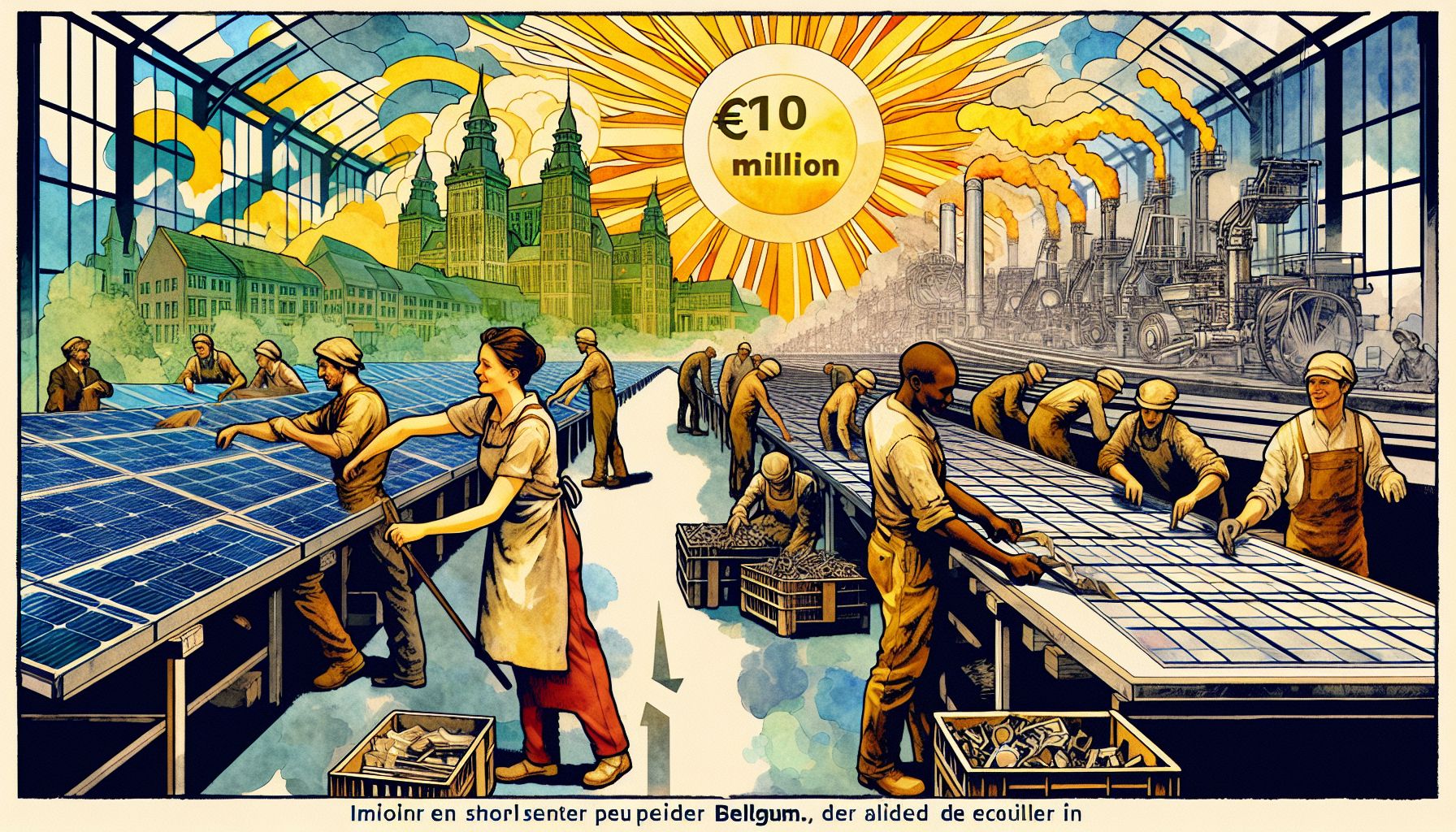Belgium Invests €10 Million in Solar Panel Recycling, Outpacing Dutch Efforts

Brussels, Tuesday, 17 September 2024.
Belgium has allocated €10 million to a solar panel recycling fund, demonstrating a strong commitment to sustainable practices. This initiative contrasts sharply with the Netherlands, which is still in the early stages of establishing similar programs, despite having more installed solar capacity.
Belgium’s Proactive Approach
Belgium’s investment into solar panel recycling marks a significant step toward sustainable energy management. Spearheaded by PV CYCLE, a non-profit organization that manages the collection and recycling of photovoltaic panels, the initiative is designed to fund recycling efforts for the next one and a half years. According to Johan Goossens, Country Manager Belgium at PV CYCLE, Belgium stands out because it has a single organization responsible for managing the entire recycling process, unlike many other European countries that have a fragmented approach[1].
Comparing Belgium and the Netherlands
While Belgium has placed €10 million into a recycling fund, the Netherlands has just begun setting up its own fund for solar panel recycling. Despite having more than twice the number of solar panels installed, the Netherlands charges a lower fee for recycling. Dutch consumers pay between €0.88 and €1 per panel, whereas Belgians pay €1.50 per panel[1]. This discrepancy highlights the more robust financial commitment Belgium is willing to make to ensure effective recycling.
The Recycling Process
The recycling of photovoltaic panels is a well-established process, capable of recovering up to 99% of the materials used in solar panels. The process involves several stages, including disassembly, shredding, and material separation to recover valuable components like metals, glass, and silicon particles. According to the WEEE Directive, in effect since 2012, producers of photovoltaic panels are mandated to take responsibility for the recycling of their products, pushing the burden of compliance onto importers who, in turn, rely on organizations like PV CYCLE to manage the logistics[2].
Environmental and Economic Impact
Recycling one ton of photovoltaic panels can prevent the emission of 1,200 kg of CO2, making it a vital component in the fight against climate change. Additionally, as the global photovoltaic capacity is projected to hit 4,500 GW by 2050, the recycling of these panels will become increasingly important. Life Cycle Assessments (LCA) have been conducted to evaluate the environmental benefits of different recycling technologies, emphasizing the importance of full materials recycling to foster a circular economy[3].
Future Prospects
As solar panel installations continue to grow, the need for efficient and effective recycling systems will become more pressing. Belgium’s proactive approach serves as a model for other countries looking to enhance their sustainability efforts. The collaboration between PV CYCLE and various stakeholders ensures that the recycling process is both efficient and environmentally friendly, setting a high standard for future initiatives. As more countries adopt similar measures, the global impact of solar energy can be maximized, contributing significantly to the reduction of greenhouse gas emissions and the promotion of a sustainable future[4][5].

